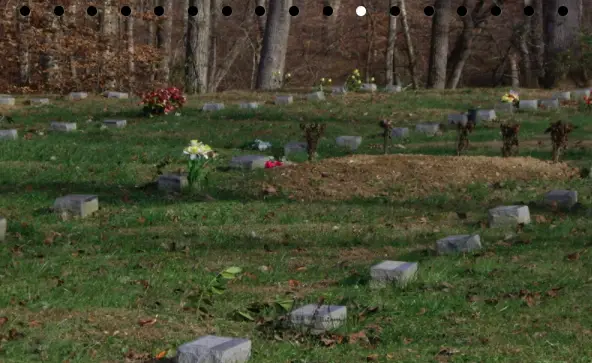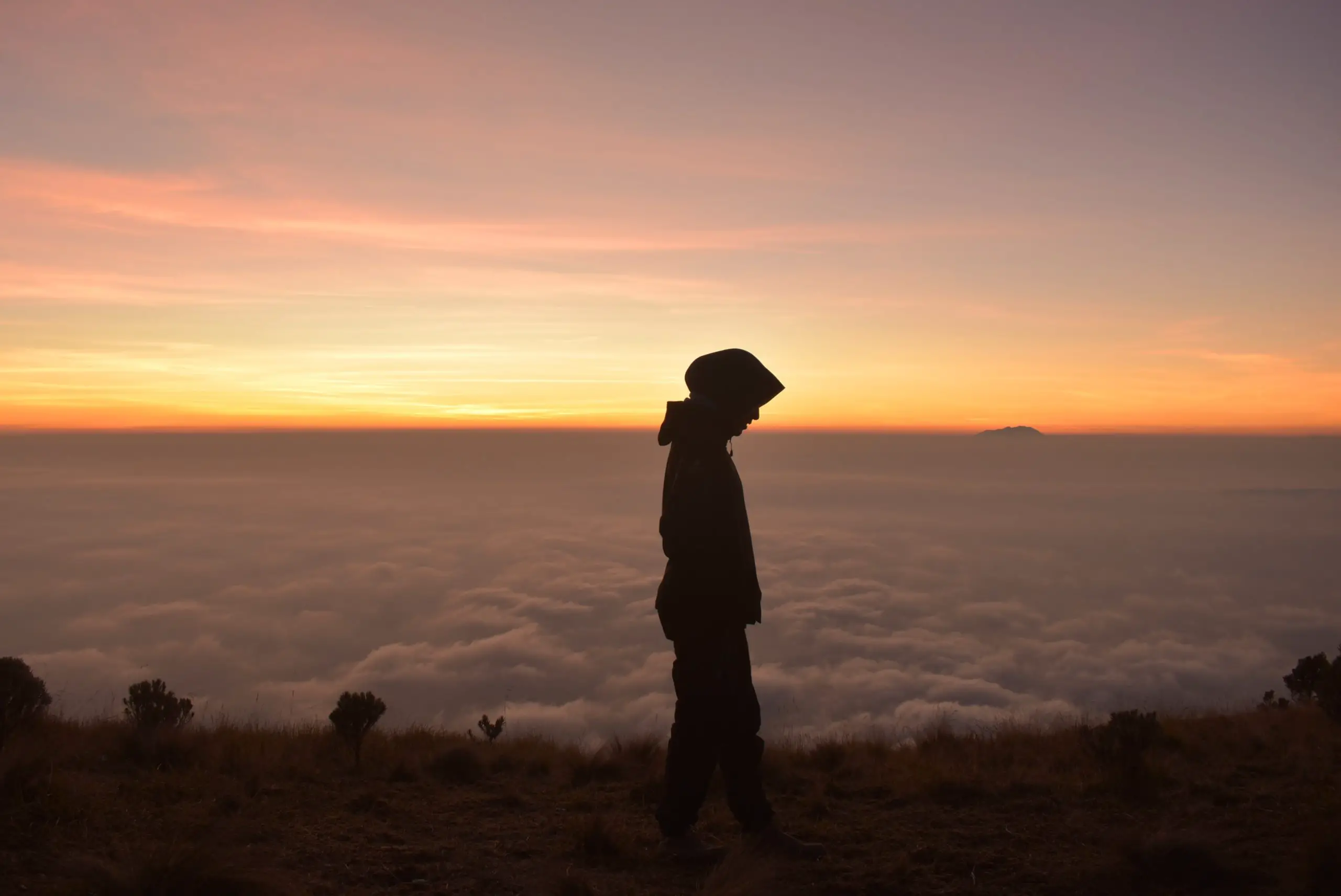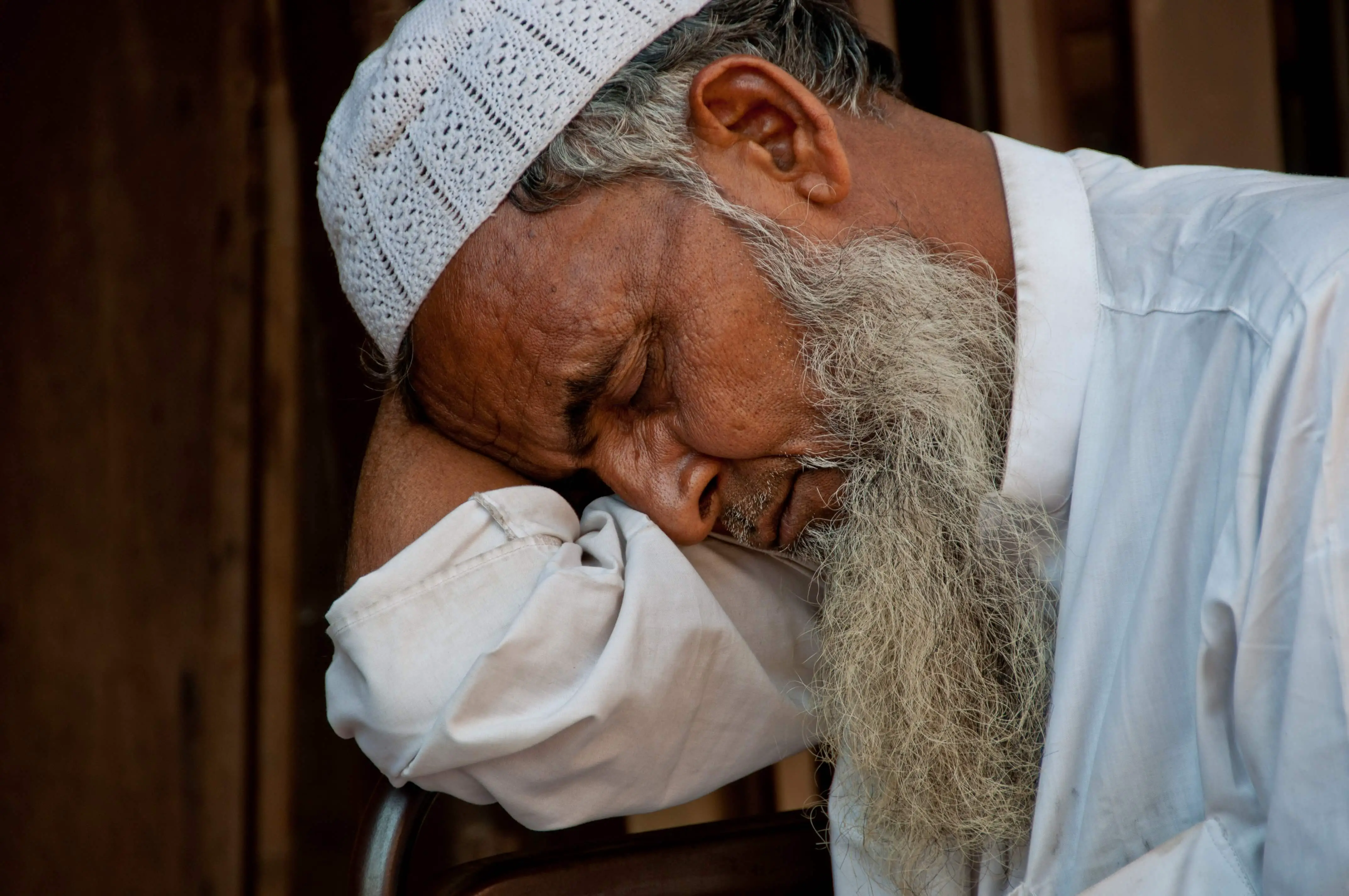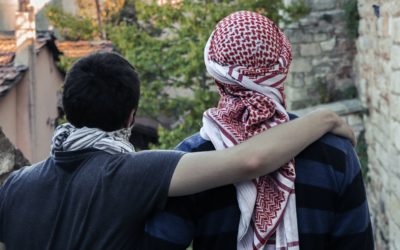What is the difference between services provided by a funeral home versus a cemetery?
Funeral homes are responsible for collecting, transporting, washing and shrouding the body. They handle everything from the point of picking up the body after it has been released by authorities or coroner and up until the actual burial. This is where cemetery services step-in and manage the preparation of the gravesite along with the physical burial process. In some cases, the same entity may be set up to handle both the funeral and cemetery services. However, more than likely, it will be two separate entities, and your funeral home service provider will handle the coordination with the cemetery.
What is the role of a Muslim funeral home?
Funeral homes specialize in managing the logistics, preparation and paperwork of your loved ones funeral. When the deceased passes away, the family should call the funeral home to arrange for a pick up and set a time for the Janazah (funeral) prayer. If you are using a Muslim funeral home, they can help coordinate the Janazah prayer. Otherwise, you should contact your local mosque or Islamic center to set up the Janazah prayer.
Once the body has been collected, they will perform ghusl (washing) of the deceased. In cases where you are working with a non-Muslim funeral home, you can contact your local mosque for support in performing ghusl. If the family wants to participate in washing the deceased, the funeral home can help make sure the washing is done correctly and guide them through the process. Next, they put the kafan (shroud) on the body. Again, if the family wants, they can participate in the shrouding of the body with the funeral home guiding the family through the process. After the body is prepared, Muslim funeral home services puts the deceased in a coffin. They will then transport the deceased to the local mosque, designated community area, or cemetery grounds for the Janazah prayer.
After the Janazah prayer has been completed, the body will be transported to the cemetery. The funeral home can also coordinate a police escort to transport the deceased to the cemetery.
If the deceased is being flown overseas or to a different state for burial, embalming the body is generally a legal requirement. The embalming process is done by the funeral home.
Is Embalming Allowed In Islam?
Aside from the transportation, washing, and shrouding of the deceased, a funeral home can offer other services. They typically help with required paperwork (e.g., filing for the death certificate). Some funeral homes can assist with writing the obituary and sending out the information to various newspapers and media. They also usually coordinate between the mosque and cemetery services to make sure the process is being handled smoothly. They can also provide answers to the next steps such as how to handle insurance claims, Social Security benefits, Veteran benefits1, etc.
View Estate & Finance Checklist
It is important to note that funeral home services can vary. The above are things that are typically done by funeral homes, but it doesn’t mean that all funeral homes do all of these services. It is best to call the funeral home, once you have chosen one, to confirm what services are offered.
What Is the Role of the Cemetery?
The role of cemetery services is to take care of everything dealing with the gravesite and burial. They are responsible for preparing the burial site, putting the deceased in the burial site, closing the grave and putting in a headstone or marker on the grave.
There are four types of cemeteries: public, religious, district and national cemeteries2. Public cemeteries are owned by either corporations or independent parties. Religious cemeteries are owned by a religious organization; for Muslims, this would either be by a mosque or a non-profit set up by the Muslims depending on your area. District cemeteries are owned by a city or county and are also classified as non-profits. National cemeteries are for veterans or their families, which are free to be buried in. However, the cost of shipping the deceased and funeral costs such as the coffin are paid for by the family3.
It is important to note, some cemeteries require you to use their grave markers and may charge extra for installing a marker other than the ones they provide. Therefore, either you or the funeral home, should speak to the cemetery before buying your own grave marker.
How much do Muslim funerals cost?
The costs of the funeral home and cemetery services vary based on location, type of services used, etc. In the US, the average funeral can cost anywhere from $9,000 – $15,000. However, because Muslim funerals typically don’t involve costs associated with ornate caskets, flower arrangements, services, etc., as such, the costs tend to be lower. Muslim funeral costs can start at around $3,500 in some cities.
Funeral Services Costs
Basic services at funeral homes typically start around $1,200. This usually includes things like transportation, refrigeration, washing and shrouding.
Other additional services include:
- Concrete or wooden box for the body
- Kafan (shroud)
- Evening or weekend burials
- Death certificates and extra copies
- Police escorts
- Autopsy care
- Embalming
In some cases, these additional services will be included in the base, so you would need to contact your funeral home director for specific pricing and details.
Cemetery Service Costs:
Cemetery services can start at around $1,500. The grave plot can range from anywhere to $500-$5,000; it depends on the chosen cemetery and your locality. The fees related to opening and closing the grave can range from $400-$2,000.The concrete grave liner can range from $400-$2,000; concrete liner is required in some parts of the country due to local ground conditions.
It is important to note that some Muslim cemeteries waive the fees related to burial costs if the deceased’s family cannot afford it. Speak to your local cemetery to learn about their policy.
Do I have to use a Muslim funeral home service? Or is it ok to use a non-Muslim funeral service operator?
You don’t have to use a Muslim funeral home service4. However, it can be more convenient to use a Muslim funeral home.
If you do use a non-Muslim funeral home or a Muslim funeral home is not available in your locality, you will have to explain the process of how to care for your loved one. For example, you will need to either arrange for someone to perform the ghusl (washing) of the deceased or do it yourself. In some non-Muslim funeral homes, you can request a room to do the washing. Next, you will also have to either put on or arrange for someone to put on the kafan (shroud) in accordance to Islamic guidelines.
You would most likely have to arrange the Janaza prayer by yourself, as well. If your locality doesn’t have a Muslim funeral home, you should reach out to the local masjid or imam to find out the best place to wash and shroud your deceased, the process for arranging the Janaza prayer, volunteers that can help, and if they provide other support to make this time easier.
Who handles the ghusl/body prep? What happens if it’s a non-Muslim funeral home unfamiliar with Islamic body prep rites?
The ghusl (washing of the body) and the kafan (shrouding of the body) are done in the funeral home. There is a lot of room for who can do the washing and/or shrouding. However, the main restriction is that a male should do the washing and shrouding of a male and a female should do the washing and shrouding of the female. The same rules and dignities of who can and cannot see the body while the deceased was alive apply in death too.
From a logistical perspective the funeral home handles coordinating the washing and shrouding.
Muslim Funeral Home
A Muslim funeral home usually has the kafan, shroud, along with the washing facilities and camphor already set up. For the washing, the family can opt to do it or a Muslim funeral home can have volunteers from the community come to do the ghusl. The same applies to the shrouding. In the case of the family opting to do the washing and/or shrouding, volunteers are usually on hand to guide and help the family through the process to make sure all of the correct steps are done in the correct order. Sometimes family members are not comfortable doing all of the washing and/or shrouding. In those cases, the family can ask the volunteers to incorporate them into the washing and/or shrouding process based on what they feel comfortable doing. For example, if the family can’t do the washing and/or shrouding due to comfort levels, they can always apply the camphor at the end to participate in the process before their loved ones are fully shrouded.
Non-Muslim Funeral Homes:
If you have to use a non-Muslim funeral home who is not familiar with the process, then the family should let the funeral home that you want the body washed and shrouded according to the Islamic rites. The family of the deceased will most likely be responsible to provide things like the kafa or camphor for the washing process.
If the family wants to do the washing and/or shrouding themselves, they can learn more here. If the family is uncomfortable doing the washing and/or shrouding, they should contact their local mosque or Islamic center to see if there are volunteers who can come out and perform these rites.
Does the funeral home or cemetery also help coordinate the Janazah prayer?
In many instances, the funeral home does coordinate with your mosque to arrange the Janazah prayer.
If you use a non-Muslim funeral home or a Muslim funeral home is not available, the best thing would be to contact your local mosque to see if they recommend using a specific funeral home. For non-Muslim funeral homes, the coordination depends on your locality and the services offered in your area. Some non-Muslim funeral homes already have processes in places for various religious services and others don’t. Therefore, making sure you coordinate between the mosque and funeral home is important so all of the correct steps for the funeral are taken into consideration. If you have already chosen a funeral home, you would have to communicate the need for a Janazah prayer with the funeral home.
Typically, cemetery services do not coordinate the Janazah prayer as they generally only handle the actual burial and not any activities preceding the burial itself.
Where should the Janazah prayer be held?
The Janazah prayer can be held in a variety of locations. Typically the Janazah prayer is held in or around the mosque depending on the size of the congregation. It also depends on the rules of your local mosque. Some Mosques do not allow the Janazah prayer to be held in the Musallah (prayer hall) area and use different spaces such as the cafeteria, gym, or outside of the mosque to hold the Janazah prayer. The Janazah prayer can also be offered at the graveyard, in an area away from the graves, but this is not the most common practice. The best thing to do is to contact your local mosque or community leader and find out where they hold their Janazah prayers.
Do I have to choose a Muslim cemetery? Can they be buried in a non-Muslim or mixed cemetery?
If you have the option to bury your deceased in a Muslim cemetery or the Muslim section of the cemetery, you should strongly consider to do so5.
Scholars have 3 different views on being buried in a non-Muslim cemetery.
- The Islamic Fiqh Academy ruled that Muslims can be buried in non-Muslim cemeteries due to necessity6. The ideal scenario is a Muslim should be buried in a Muslim cemetery, if that is not available then in the Muslim section of the cemetery and if that is not available then non-Muslim graveyards are permitted7. Scholars of this opinion understand that moving the deceased to a different country can be cost prohibitive. They also posit that the embalming process to ship the body is not preferable. They recommend that a Muslim should be buried where they pass away8.
- The Permanent Committee for Research and Fatwa in Saudi Arabia ruled that is it not permissible to bury Muslims in a non-Muslim graveyard9. This group of scholars recommend moving the body to a country where Muslims have their own graveyard, if it’s not cost prohibitive.
- The 3rd scholarly opinion is in between the first and second one. However, it has a few more alternatives of where to bury the deceased. The first choice is a Muslim graveyard. If that is not available, then move the deceased to a country that has a Muslim graveyard10. But this is only if it’s financially feasible, legally allowed and doesn’t disturb the body. If that is not an option, then the Muslim section of a non-Muslim graveyard. If this is not possible, then a non-Muslim graveyard is permissible due to necessity. However, preference should be given to a Christian graveyard, then Jewish graveyard, and then other religious graveyards11.
What are the benefits of being in a Muslim cemetery or a Muslim-only section of a cemetery?
There are many benefits to being buried in a Muslim cemetery. From a logistical perspective, the burial and grave care will be done according to Islamic guidelines. For example, you don’t have to give additional instructions of burying the deceased facing the Qiblah, not playing music in the graveyard afterwards, etc. The grieving process is already difficult, so knowing that your loved one is buried according to Islam can provide you some peace of mind.
There are also spiritual benefits of burying the deceased in a Muslim cemetery or Muslim area of the cemetery. The Permanent Committee for Research and Fatwa in Saudi Arabia gave a fatwa or ruling that Muslims should not be buried in non-Muslim graveyards because they will be harmed by the torture that non-Muslims are going through in the grave12. In addition, Ammar ibn Yasir (R) narrates in a Hadith: “The Prophet (ﷺ) said: The angels do not come near three: the dead body of the unbeliever, one who smears himself with khaluq, and the one who is sexually defiled except that he performs ablution”13. The angels referred to in this Hadith are the Angels of Mercy14.
This is in contrast to Muslim cemeteries or Muslim areas of cemeteries. Ibn Taymiyyah says there is a mercy at Muslim graveyards that isn’t present in non-Muslim graveyards15. where duas are read when entering the cemetery that benefits all of the inhabitants of that area16. One of the duas that can be read is narrated by Ibn Abbas (R):
“The Messenger of Allah (ﷺ) passed by the graves of Al-Madinah, so he turned his face towards them and said: (As-Salamu alaikum ya ahlul-qubur! Yaghfirul-lahu lana wa lakun, antum salafuna wa nahnu bil-athar.) ‘Peace be upon you O inhabitants of the grave! May Allah forgive us and you; you are our predecessors and we are to follow you.'”17
It is recommended for Muslims to say this dua while facing the grave when entering a Muslim cemetery. Therefore, being buried in a Muslim cemetery, spiritually, gives the deceased more peace because of the Angels of Mercy are visiting and duas and Quran are being recited in the graveyard.
Can Muslims be buried in coffins?
In the majority of cases, no coffin is required or recommended for a Muslim burial. However, if it is required due to local laws or any other necessity (e.g., soft earth/ground conditions), then you should follow your local rules. Part of the Islamic approach to burials is simplicity, so using coffins or any other adornments or enclosures is disliked when not required.
What if my local law requires a coffin (or any other step, e.g., embalming) to be used?
The burial rites required in Islam are very simple and honor the body of the deceased28. In some cases, your local laws may require additional steps in body preparation (e.g., embalming) and/or burial enclosures (e.g., coffins). If that is the case, it is important to follow those requirements; however, if you have an option, it is always preferable to adhere to the funeral rites as prescribed within Islam.
Is Embalming Allowed In Islam?
If a coffin is used, which one should I choose?
A general tenant for a Muslim funeral is simplicity. So, if the use of a coffin is required, it is recommended to choose a simple, modest coffin.
If the burial is taking place at a non-Muslim cemetery, what requests should I make?
For burials that take place in non-Muslim cemeteries, the following should be requested when burying your loved one18:
- Grave Plot Site
- Try to choose a plot that has either sidewalks or enough space between the graves so the grave is not stepped on
- If there are other Muslims buried in the cemetery or a Muslim area, then opt to be buried in or near that area
- Digging the Grave
- Dig the grave or choose a plot that allows the deceased to face the Qibla, when lying down on their right side. The Qibla in North America is north/northeast. There are apps that can find the Qibla for your locality
- The grave should be dug in the Lahd style
- Placing the Body in the Grave19:
- The body should face the Qiblah and lay on the right side
- A woman should be covered by a sheet for privacy and dignity reasons, when she is being put into the grave
- The ties holding the kafan (shroud) should be removed/untied
- The grave should be shaped like a camel’s hump when finished. In other words, it should have a hump and look like a grave, so people don’t mistake it for anything else
- Water can be sprinkled onto the grave
- Grave Markers:
- There shouldn’t be any grave markers such as headstones, etc., except something small to indicate who is buried there. Usually, flat markers are used20
Does the funeral home work directly with the cemetery to coordinate the burial? Or do I have to coordinate with the cemetery directly?
It depends on your locality. Many funeral homes have pre-existing relationships with cemeteries to help you pick where you would like to bury your deceased. The Muslim funeral home will usually handle all of the coordination between themselves, the masjid for the Janaza prayer and the cemetery services. Non-Muslim funeral homes are able to handle the coordination between the cemetery services and themselves. Your local masjid might also be able to offer some guidance on which funeral homes can coordinate with the masjid and certain cemetery services.
However, it is important to note that not all funeral home services may coordinate with cemetery services, so it’s always good to ask beforehand.
Do some cemeteries have their own funeral services?
Yes, some cemeteries have funeral services also available. It just depends on what your locality has available. Many Muslim funeral homes have pre-existing relationships with various cemetery services, if they do not operate their own cemetery.
It can also be beneficial to contact your local masjid, mosque, or your local Islamic center to see if they offer funeral and/or cemetery services. Some of these places also have recommendations for services that follow the correct Islamic practices so you have peace of mind when preparing your loved one for the burial.
What do I do if I can’t afford to bury the body?
From an Islamic legal and historical perspective21, the cost for burying the body should come from the estate of the deceased, this is done before inheritance, paying off debts, or bequests are made. If the estate doesn’t have enough to cover the funeral, then the guardian is supposed to cover the costs. The guardian usually is the person who is obligated to spend on the deceased. Depending on the person, that can be a father, son, spouse, etc.22. If they can’t cover the cost, then the Bayt ul Maal, Muslim treasury, pays for the burial23. If that is not available then the family should pay for the burial. If that is not possible, then the Muslims pay for the burial24.
In our times and societies, following this order might not be possible. For example, in the US, we don’t have a Bayt ul Maal set up to take care of the needs of the people. Therefore, if the family cannot afford to pay for the burial, they will have to reach out to their Muslim community to help pay for the burial. It is important to note that it is the responsibility of Muslims, as a whole, to help the family if they can’t afford to pay for the funeral.
Some Muslim cemeteries will waive the burial fees, if you are unable to afford the costs. Some mosques or Islamic centers might be able to help pay for the funeral costs or direct you to organizations that can help. Others have used various crowdfunding sites such as LaunchGood, GoFundMe, etc. to set up campaigns to help cover the costs.
Another option might be life insurance. If your loved one had life insurance or was provided one by their employer, it can be used to pay for burial costs. If your loved one was a veteran then some or all of the costs may be covered. Some funeral homes have payment plans available or may be able to direct you to groups that can offer financial assistance.
Another option that might help is the Social Security death benefit of $22525 to assist with the funeral costs. In some cases, states or the local government can help cover funeral costs. You can look up what your state does.
Can Zakat money be used to pay for the funeral costs?
Zakat money cannot be used to pay for funeral costs26. There are 8 categories of people who are eligible to receive Zakat. Allah says in the Qur’an27:
Alms are meant only for the poor, the needy, those who administer them, those whose hearts need winning over, to free slaves and help those in debt, for God’s cause, and for travelers in need. This is ordained by God; God is all knowing and wise.
Funeral costs don’t fall under any of these categories. Therefore, Zakat cannot be used for funerals. However, Sadaqah money, which is money given in charity in an unrestricted manner, is allowed to be used for funeral costs. In cases where people cannot afford to bury their dead, giving Sadaqah, charity, to help alleviate these costs would be seen as a praiseworthy thing to do.
- Eligibility For Burial In A VA National Cemetery
- Guide: Finding A Cemetery
- Eligibility For Burial In A VA National Cemetery
- “Making Ghusl in Christian Funeral Home and Burying Muslims in Christian Cemetery” by Dr. Main Khalid Al-Qudah, AMJA Fatwa ID: 23003
- “Ruling on Burying Muslims alongside Non-Muslims” by Muhammad ibn Adam, Darul Iftaa
- International Islamic Fiqh Academy, 3rd conference in Amman Jordan, decision #23, Question 5
- The Centre of Research Excellence in Contemporary Fiqh Issues, “Burial of Muslims in Non-Muslim Graveyards” by Osoul Global Center
- “Taking the deceased back to his homeland” Reviewed by Sh. Muhammad Saalih al-Munajjid
- The Permanent Committee for Research and Fatwa in Saudi Arabia “Preparing and burying the deceased in non-Muslim countries”, Fatwa # 9024
- Dar Al-Ifta Al-Missriyyah, “Burying a Muslim in a coffin in a non-Muslim grave due to a necessity”
- The Centre of Research Excellence in Contemporary Fiqh Issues, “Burial of Muslims in Non-Muslim Graveyards” by Osoul Global Center
- The Permanent Committee for Research and Fatwa in Saudi Arabia “Preparing and burying the deceased in non-Muslim countries”, Fatwa #3081
- Abu Dawud, 4180
- IslamQ&A “If the angels do not approach the dead body of a kaafir, then how can he be questioned in the grave?”
- Al-Ikhtiyaaraat, by Ibn Taymiyah p. 94
- Sahih Muslim, 975
- Jami’ at-Tirmidhi, 1053
- “What to Look for While Buying a Cemetery”, by Dr. Main Khalid Al-Qudah, AMJA Fatwa ID: 84885
- A Practical Guide to Funeral Rites in Islam by Maulana Ebrahim Noor, pg. 35-39
- All You Need To Know About Headstones And Grave Markers
- A Practical Guide to Funeral Rites in Islam by Maulana Ebrahim Noor, pg. 22
- al-Majmoo’, 5/148-150
- A Practical Guide to Funeral Rites in Islam by Maulana Ebrahim Noor, pg. 22
- Badaa’i’ al-Sanaa’i’, 2/330
- If You Are The Survivor | SSA
- IslamQ&A “Preparing a deceased poor person for burial from zakaah funds”
- Quran.com, Abdul Haleem Translation
- Sunan Abi Dawud 3207, Grade: Sahih, https://sunnah.com/abudawud/21/119




